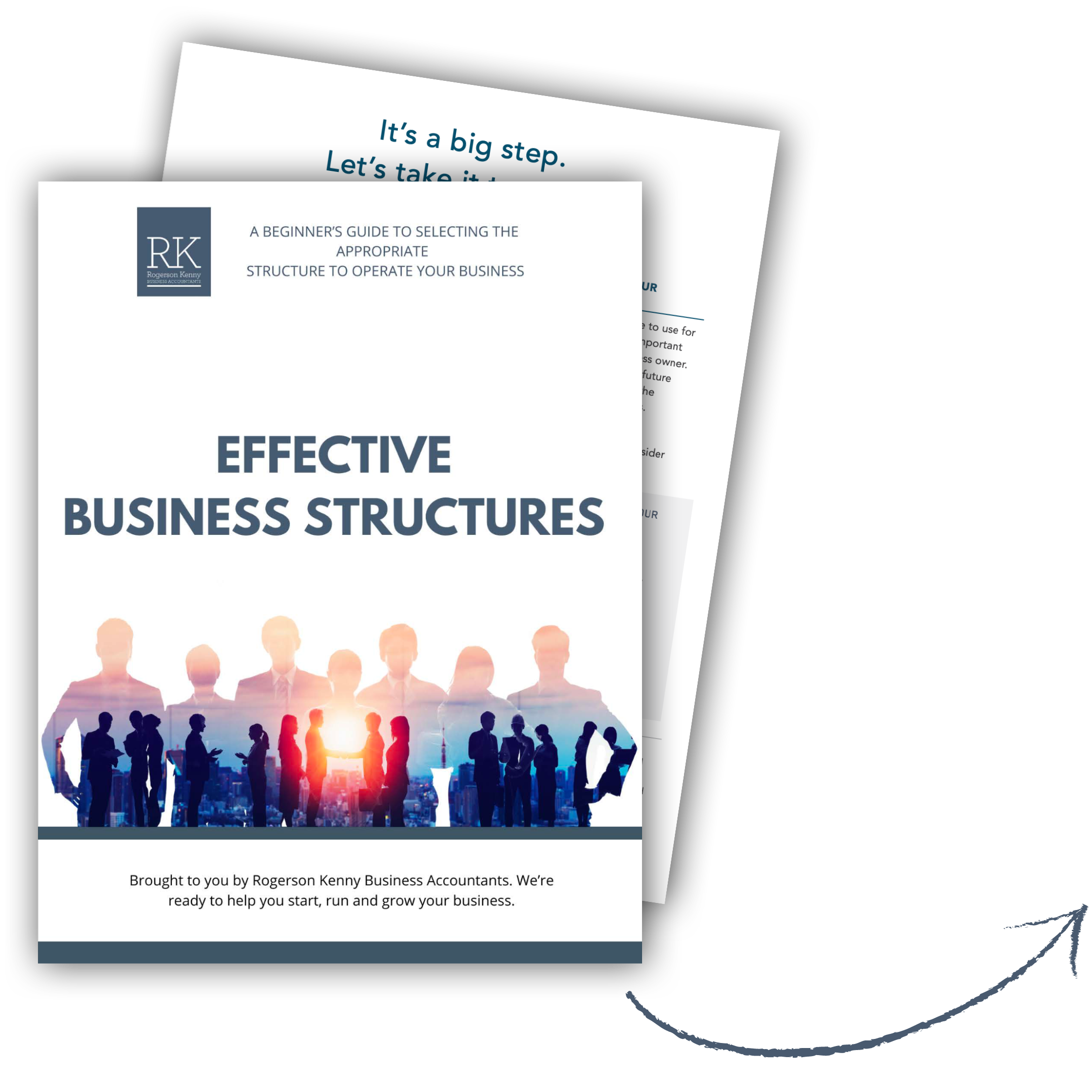Download your free copy of our ‘What to Consider when Choosing a Business Structure’ eBook below:
Choosing the Right Business Structure
When starting a new venture, one of the most critical decisions you’ll face is choosing the right business structure. This choice will influence everything from your tax obligations to your personal liability, so it’s crucial to get it right from the start.
What is a Business Structure?
A business structure, also known as a legal or tax structure, is the legal framework within which a business operates. It can own assets, enter into contracts, and be recognised as a separate entity from its owners in a legal jurisdiction. This distinction is essential, as it can affect everything from how much tax you pay to the level of personal risk you face.
Key Considerations When Choosing a Business Structure
Your choice of business structure should be tailored to your unique circumstances. There’s no one-size-fits-all solution, and each option comes with its own set of advantages and disadvantages. Engaging with a professional accountant is vital to ensure that you make an informed decision.
Asset Protection
One of the primary considerations when selecting a business structure is asset protection. This refers to safeguarding your personal assets from business risks. If your business is likely to borrow money, operate in a high-risk industry, or face the possibility of liabilities exceeding assets, then asset protection should be a top priority.
- Incorporated vs. Unincorporated Structures: Incorporating your business (e.g., forming a company or a trust with a corporate trustee) can provide a higher level of asset protection by separating personal and business assets. Unincorporated structures, such as sole traders or partnerships, offer less protection, as the business is not legally distinct from its owners.
- Insurance: In addition to choosing the right business structure, securing appropriate insurance is essential to mitigate potential risks.
Ownership and Control
Consider how much control you want over your business and how ownership will be managed:
- Transferability: Does the structure allow for ownership to be transferred easily? Can unrelated parties become owners?
- Control vs. Ownership: Some structures allow for ownership and control to be separate, which can be beneficial in certain scenarios.
Income Tax Planning
Your business structure will significantly impact your tax obligations:
- Current and Future Profitability: Consider not only your current turnover and profit but also what they might look like in the future. This will help you choose a structure that minimises your tax liabilities over time.
- Income Classification: Whether your income is classified as revenue or capital can affect your choice of structure.
- Tax Concessions: Some structures may allow access to tax concessions, such as research and development tax credits, which are typically only available to companies.
Capital Gains Tax (CGT) Planning
If your business is likely to generate capital gains, this should be a key factor in your decision:
- CGT Concessions: Some business structures are eligible for the 50% CGT discount or small business CGT concessions. Understanding how your chosen structure will affect your CGT liabilities is crucial, especially if you plan to sell the business or its assets in the future.
Cost Considerations
The costs associated with establishing, operating, and winding up a business structure vary widely:
- Establishment Costs: How much will it cost to set up your chosen structure?
- Ongoing Fees: What are the annual costs, such as compliance fees and administrative expenses?
- Complexity: Consider how complex the structure is to manage, both now and in the future.
Succession Planning
While it might not be top of mind when starting a business, succession planning is vital:
- Transferability: Can the business structure easily admit new owners or transfer ownership within a family?
- Sale Considerations: If you plan to sell the business eventually, consider who the likely buyers will be and whether the structure will appeal to them.
Other Factors
Several additional factors might influence your choice:
- Industry Requirements: Does your industry or professional body require a specific structure?
- Lender Requirements: Will banks or other lenders require a particular structure before offering finance?
- Licensing: Certain business structures might be necessary to obtain the required licenses or registrations.
- Growth and Flexibility: Can the structure accommodate future growth or changes in operations?
Final Thoughts
Selecting the right business structure is a complex decision that requires careful consideration of many factors, both current and future. It’s likely that no single structure will meet all your needs perfectly, so you may need to use a combination of structures to achieve your desired outcomes.
Above all, consult with a professional accountant who can provide tailored advice to help you make the best decision for your unique situation.

About the Author
Mark Rogerson- Managing Director, Rogerson Kenny Business Accountants.
Mark became a Director at Rogerson Kenny Business Accountants in 2011 and is currently Managing Director, CPA qualified, and an SMSF Specialist Advisor™. Mark believes the vision of the firm gives him great focus on how to add value when dealing with clients, being: helping clients achieve their financial goals, guided by our advice and active participation in their business ventures.
If you would like to discuss this topic further, please contact Rogerson Kenny Business Accountants on (03) 9802 2533.

Effective Business Structures: Your essential guide.
A beginner's guide to selecting the appropriate structure to operate your business
Designed to be thought-provoking, it helps you identify issues and opportunities in each business structure while covering essential operational and performance considerations, all backed by our business advisor insights.








One Comment